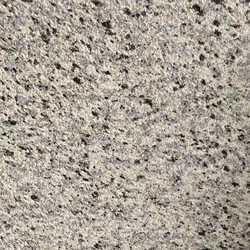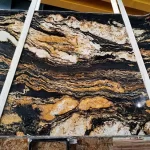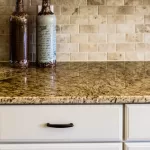The durability, beauty, and endurance of granite worktops are three reasons why they are highly valued. In order to guarantee that these characteristics will be preserved throughout time, it is essential to clean and maintain granite countertops in the appropriate manner. The purpose of this post is to give you with a complete guide that will assist you in understanding the best techniques for cleaning and preserving your granite countertop at all times. We are going to cover a wide range of topics in order to guarantee that your granite countertop will continue to be in beautiful condition for many years to come. These topics include regular cleaning routines, managing stains, and applying preventative measures.
Routines for Cleaning Every Day
Establishing a programme for cleaning your granite countertop on a regular basis is crucial if you want to keep it looking clean and in good condition. Take the following procedures to ensure everyday cleanliness:
By wiping the surface of the countertop with a sponge or a microfiber cloth that is gentle, you may remove any crumbs or loose debris that may be present.
You may make a mild cleaning solution by combining warm water with a granite cleaner that is pH-neutral and does not have abrasive properties. If you want to keep the surface of the granite in good condition, you should avoid utilising cleansers that are acidic or abrasive.
Use the cleaning solution to dampen the sponge or cloth, and then wipe the countertop in a circular motion while being careful not to scratch it. Make certain that the whole surface, including the corners and edges, is thoroughly cleaned.
Wipe the countertop once more after rinsing the sponge or towel with clean water to eliminate any residue that may have been left behind.
A clean, dry towel should be used to properly dry the countertop in order to avoid water stains or streaks from appearing.
Dealing with the Stains
Despite the fact that granite is naturally resistant to stains, certain chemicals can nevertheless leave markings on the surface if they are not removed as soon as possible. A guide to removing typical stains is as follows:
A paper towel or a soft cloth should be used to blot the stain as soon as possible. Organic stains include things like coffee, wine, and fruit juice. Using a solution of water and a gentle dish soap, clean the region in a way that is gentle. Cleanse thoroughly and then pat dry.
Stains that are based on oil, such as frying oil and grease: Directly onto the stain, use a poultice that is comprised of baking soda and water, or use a solution that is specifically designed to remove granite stains. The poultice should be covered with plastic wrap and allowed to sit for the entire night. Take the poultice off and then rinse the affected area. Whenever it is required, repeat the process.
Etching is a process that is distinct from staining since it has an effect on the surface of the granite. Etching is characterised by dull patches that are created by acidic chemicals. In order to restore the sheen, it may be necessary to have it polished by a professional if etching develops. Putting acidic stuff like citrus fruits or vinegar straight on the tabletop is something you should try to avoid doing.
Taking Preventative Actions
Protecting your granite countertop from potential harm may be accomplished via the implementation of preventative measures. Think about the following suggestions:
Granite should be sealed because it is porous and should be sealed to prevent liquids from reaching the surface of the granite granite. In order to ascertain the suggested sealing frequency for your particular granite countertop, you need obtain this information from the manufacturer or from a stone specialist.
Utilise Cutting Boards and Trivets
When working with sharp knives, hot cookware, or heated appliances on the countertop, it is imperative to constantly make use of cutting boards and trivets in order to avoid scratches and damage caused by heat. It is best to avoid dragging anything that are heavy or rough across the surface.
Immediately Clean Up Spills
It is important to clean up any spills as soon as possible in order to avoid them from penetrating the granite and developing stains. Instead of cleaning the spill, you should blot it to prevent it from spreading.
Coasters and mats should be used. To prevent water rings from forming on glasses, mugs, and bottles, place coasters under them. In order to prevent plates, cutlery, and other items from coming into direct touch with the countertop, placemats or mats should be used below them.
It is important to steer clear of harsh cleaners and chemicals. Acidic cleansers, abrasive powders, bleach, ammonia, and vinegar-based solutions should be avoided since they have the potential to dull the surface or remove the sealant coating.
In order to maintain the beauty of granite countertops and ensure that they last as long as possible, proper cleaning and care are essential. You can guarantee that your granite countertop will continue to be in outstanding condition for many years to come by adhering to a daily cleaning schedule that is regular enough to be followed, swiftly treating any stains that may appear, and taking preventative steps. Always be sure to use mild cleaning solutions, stay away from items that are abrasive, and seek the assistance of specialists if necessary. Your granite countertop will continue to be a gorgeous centrepiece in your kitchen or bathroom if you take the necessary maintenance of it. This will add both value and elegance to the area you have available to you.










